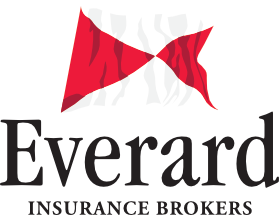As the warmer months approach, you may be turning your attention to your outdoor spaces. For homeowners with significant investments in landscape design, garden architecture, and premium outdoor furnishings, appropriate protection extends far beyond standard insurance considerations.
At James Hallam, we understand that your garden may represent both a personal sanctuary and a significant investment. Here, we share insights on ensuring your outdoor spaces receive the appropriate protection through the spring and summer months, with practical steps you can take yourself.
Garden furnishings and luxury outdoor items
Fine garden furniture collections and premium outdoor accessories often represent substantial investments that require appropriate cover:
- Policy limitations awareness: Many home insurance policies cap garden item cover levels at what could be a fraction of what many high-quality outdoor collections are worth. It is essential to check your item limits to make sure the cover is high enough.
- Documentation approach: Create your own detailed inventory with photographs and purchase documentation for your valuable outdoor items. This meticulous record-keeping will prove invaluable should a claim arise.
- Bespoke cover: For gardens featuring significant investments, we can arrange bespoke insurance with broader cover much more appropriate for your outdoor spaces.
Garden structures and architectural elements
Sophisticated garden buildings and architectural features require thoughtful insurance planning:
- Cover: Garden rooms, orangeries, and pool houses often warrant specific cover extensions under a standard household insurance policy or they may not be suitably insured.
- Maintenance: Develop your own seasonal maintenance plan for architectural garden features to prevent potential claim complications.
- Security: When it comes to your property and those special garden features, you really want security solutions that protect everything while still looking good. Find options that will meet your insurance company’s requirements but won’t ruin the look of your architecture. It’s all about striking that right balance.
- Specialised use: If your garden buildings serve a specific purpose like housing collections or receiving business visitors – please inform us so we can ensure your policy has the right cover in place.
Preparing for British weather extremes
A well-prepared garden can withstand both severe rainfall and heatwaves, protecting your substantial outdoor investments while potentially avoiding insurance claims:
- Trees: Mature specimen trees add considerable value to distinguished properties but require attention. Regularly inspect trees for dead or weak branches that could damage valuable garden features during storms.
- Drainage: Check for drainage throughout your garden. French drains disguised with decorative gravel, strategically placed swales that appear as natural landscape contours, or ornamental rain chains can direct water away from valuable structures while enhancing your garden’s aesthetic appeal.
- Heat-resilient choices: With increasing summer temperatures, consider heat-resistant materials for patios and walkways that remain cool underfoot. Incorporate shade using pergolas, pavilions or strategic planting to protect heat-sensitive elements and create comfortable entertaining areas even during the hottest days.
- Water systems: Install water collection systems such as elegant cisterns or subtly placed water butts connected to downpipes. These can provide irrigation during drought periods while reducing runoff during heavy rainfall. Smart irrigation systems with moisture sensors can ensure optimal watering while conserving resources.
- Storm preparation: Storms can develop during hot weather. Secure or relocate valuable garden items before forecasted storms. Having designated protected storage areas for furniture cushions, lightweight containers, and garden ornaments prevents damage and potential liability from wind-mobilised projectiles.
Annual insurance portfolio review
As your garden evolves throughout the seasons, so should your insurance protection. Take time each spring to assess your cover following new garden enhancements, ensuring any significant investments in rare specimens, mature plantings, or bespoke features are properly valued and documented. This annual review helps prevent potential cover gaps that might only become apparent when you need to make a claim.
Ensuring proper protection
Your garden deserves the same careful insurance consideration as your main residence.
Many standard UK policies fail to adequately address the substantial value contained in fine gardens and outdoor spaces. High net worth insurance policies typically offer more comprehensive cover, but still require careful attention to detail on limits, and exclusions.
Before the peak garden season arrives, review your current policy to ensure your garden investments receive appropriate protection. Consider whether your policy reflects recent garden enhancements, contains appropriate single-item limits for valuable features, and provides adequate restoration cover should the unexpected occur.
At James Hallam, we specialise in sophisticated insurance solutions. For a personalised review of your garden and outdoor insurance needs, please get in touch. We are here to ensure your complete property portfolio receives the protection it deserves throughout every season.
Get in touch
If you have any concerns or queries on your insurance cover please don’t hesitate to speak to us.
You can call any of the team on 0203 002 9859 or email pcl@jameshallam.co.uk.












